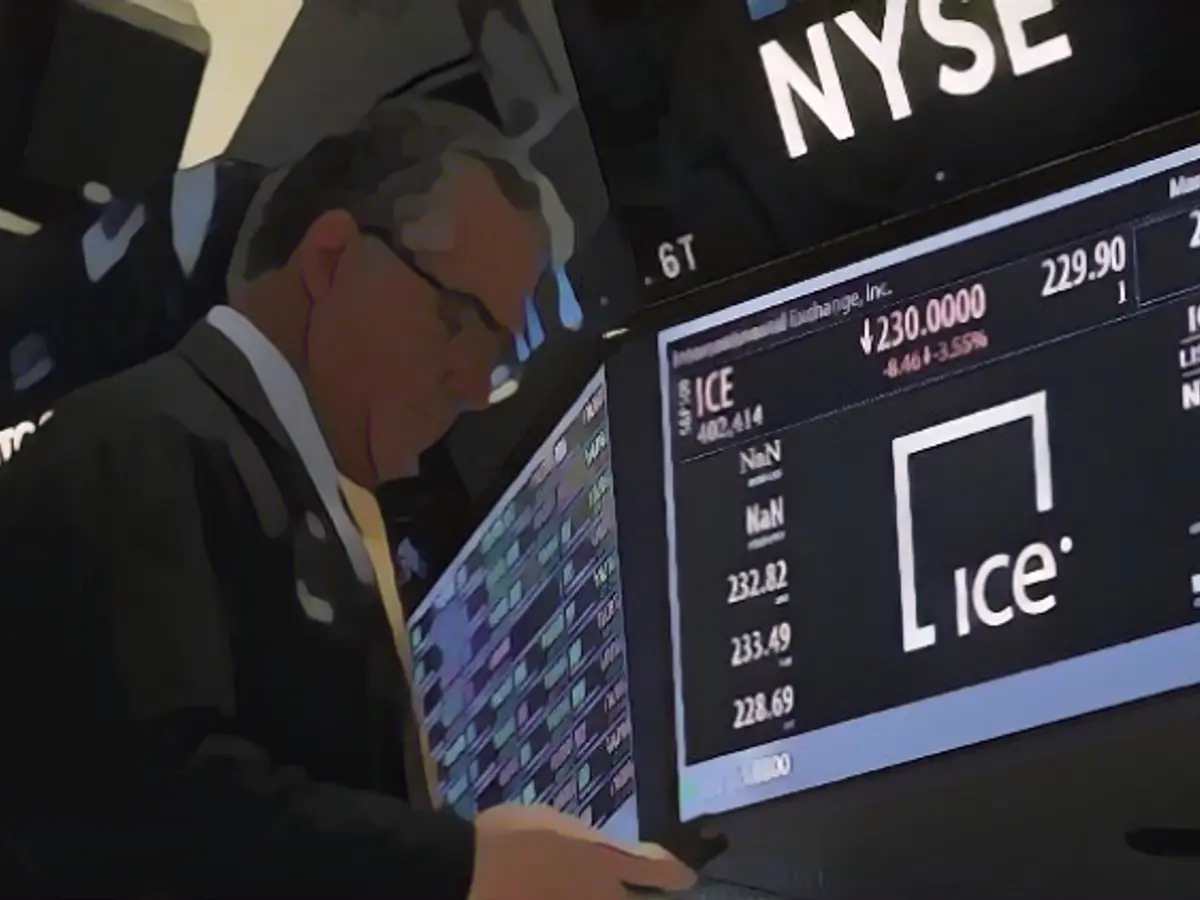Wall Street Investors Tread Cautiously Ahead of US Inflation Data
On the eve of the release of the US inflation figures, Wall Street investors are adopting a guarded approach, with the stock market concluding without a clear direction. Boeing, however, experienced a significant surge.
To kick-start the week, investors on Wall Street approached the market with apprehension. The Dow Jones Index, consisting of blue-chip stocks, edged up 0.2% to 34,337 points. Meanwhile, the tech-heavy Nasdaq dipped 0.2% to 13,767 points, and the broad-based S&P 500 fell 0.1% to 4411 points. Despite the turbulent start, major indices have experienced a substantial recovery this month, spurred by improved corporate balance sheets and speculations about interest rate stagnancy.
Anticipation surrounds the US inflation data for October, which will offer insights into the Fed's future interest rate path. According to Peter Cardillo, chief economist at Spartan Capital Securities, if the year-on-year figures maintain their downward trend, it will confirm the possibility of no rate hike in December and potential completion of the rate hike cycle. Consumer prices are expected to increase 3.3% in October, from 3.7% in September. Experts forecast that the core rate (excluding volatile energy and food prices) may still surpass the Fed's inflation target.
The rating agency Moody's shook investor confidence by lowering the US’s outlook from "stable" to "negative," raising concerns about an upcoming downgrade and elevated borrowing costs. Previously, Fitch and S&P had stripped the US of its triple-A rating.
In the crude oil market, an Opec report allayed investor concerns about diminishing demand in the US and China for the time being. Consequently, Brent North Sea crude and US WTI oil prices increased by around 1.5% each, reaching 82.73 and 78.46 dollars per barrel respectively. Boeing gained a significant boost after securing an order worth 50 billion dollars from Dubai, causing its shares to surge by over 4%. This was also aided by speculations that China may resume Boeing 737 Max aircraft orders, benefiting Boeing's earnings over the subsequent 6 to 18 months.
However, Lyft’s shares dropped by almost 5% due to Alphabet’s divestment from the ride-hailing company.
Wall Street trading remained active, despite market uncertainty related to the US inflation data. The Dow Jones experienced a slight rise, with Boeing playing a significant role in its ascent. Conversely, tech companies, represented by the Nasdaq and S&P 500, displayed minor declines.
Implications of Inflation Data
- Investor Sentiment: The approaching inflation data influences investor sentiment, triggering market volatility. The expectation of a 3.2% inflation rate in 2025 surpassing the Federal Reserve’s target presents uncertainty and muddles the market.
- Fed Rate Cuts: The prospect of interest rate cuts by the Fed due to inflation concerns serves as a double-edged sword. While lower rates can stimulate equities, the uncertainty surrounding the inflation data wears down investor confidence.
- Economic Data Impact: Factors such as the Producer Price Index (PPI) and Consumer Price Index (CPI) play a vital role. While a less-than-expected PPI rise alleviates some concerns, the CPI figures remain a crucial focus, potentially influencing the Fed’s decisions on interest rates.
Impact on Individual Stocks
- Boeing (NYSE:BA): Negative sentiment and safety incidents have negatively impacted Boeing's stock performance. Delays in the 737 MAX program and the 777X delivery contribute to the company's declining stock price. Combined with a rise in short interest, Boeing faces additional pressure.
- Tech Companies (Nasdaq and S&P 500): Inflation concerns and mixed earnings reports have influenced the tech sector. While stocks like Intel and Qorvo have gained, overall, the sector has experienced volatility.
In conclusion, inflation data continues to shape investor sentiment and market direction. Despite subsequent economic data points offering temporary relief, the overall uncertainty about inflation persists as a primary concern, affecting stocks like Boeing and the tech sector represented by the Nasdaq and S&P 500.








